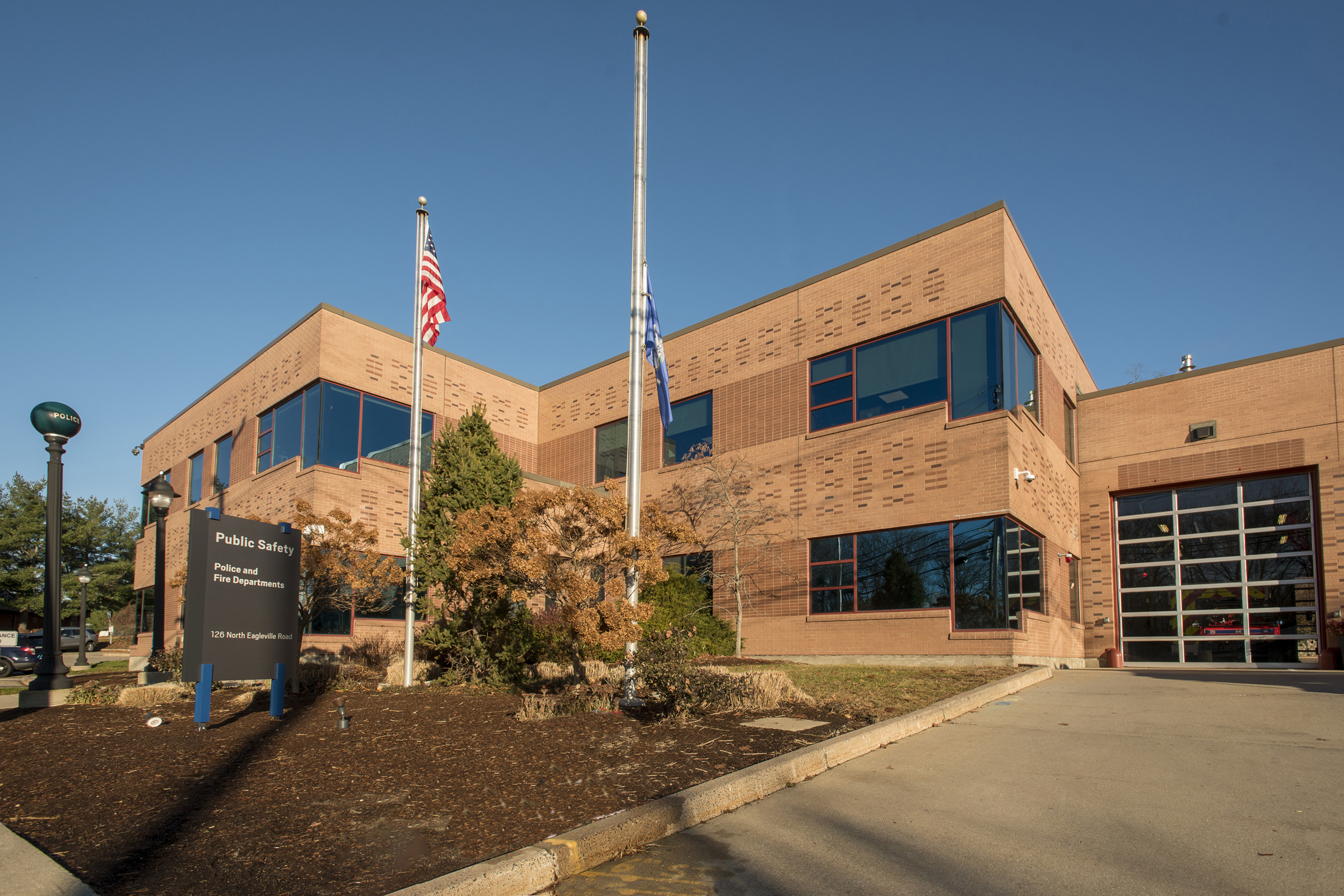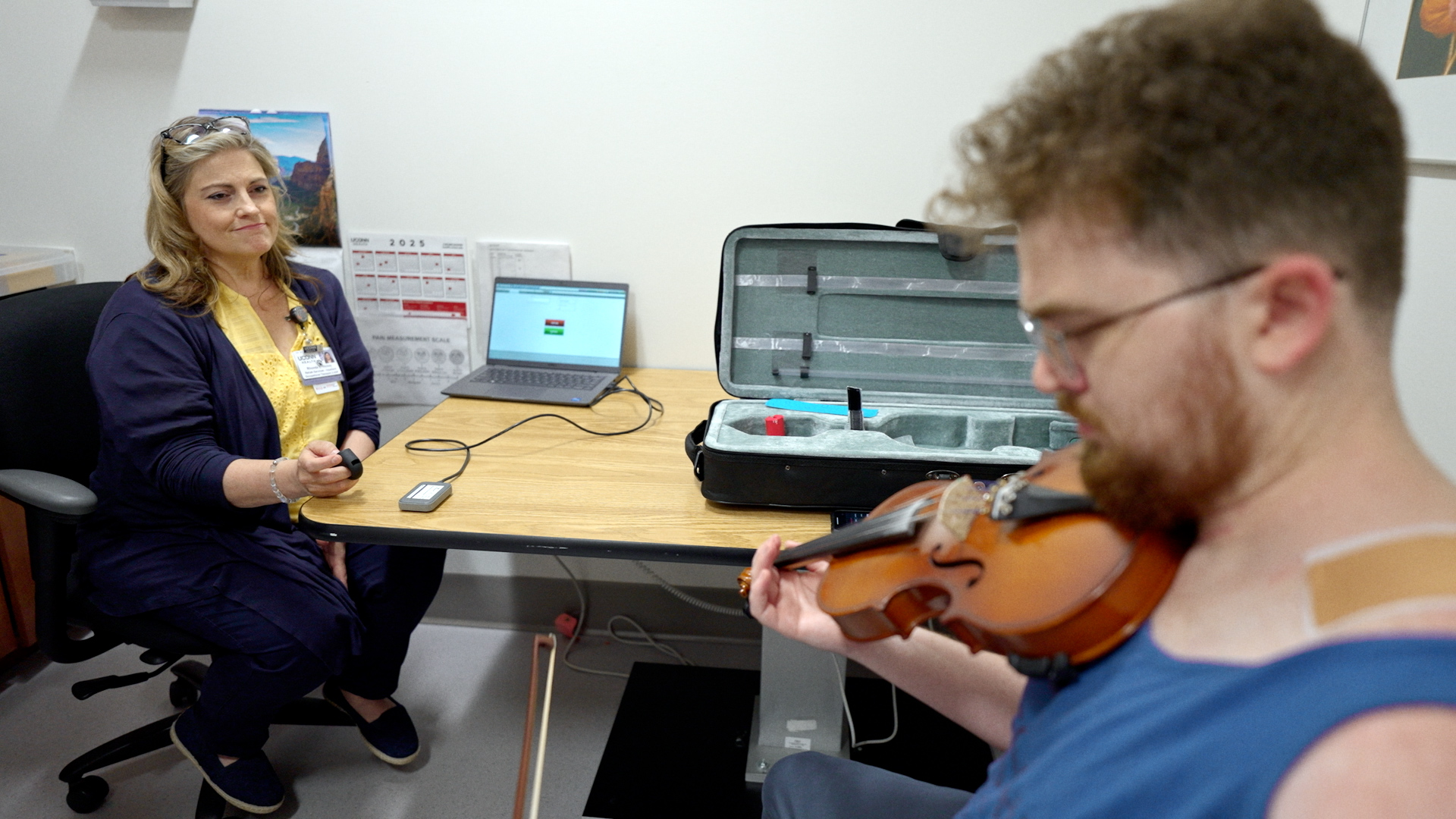UConn is implementing a number of initiatives to ensure transparency, community involvement and sensitive response to mental health concerns as part of its public safety and policing standards.
President Thomas Katsouleas announced the updates Wednesday, noting that the national uprising over questionable actions by some police officers have prompted reconsideration of policing laws, policies and standards throughout the U.S.
“While I am confident that our police officers meet a high standards of professional policing, I am directing UConn’s Police Department and other UConn leaders to take immediate steps to provide assurances to our students, their families and me that we are adhering to the highest standards of policing and accountability at each UConn campus,” Katsouleas said.
Starting immediately, he said, the University will:
- Create an Advisory Committee on Policing (ACP) comprising selected faculty, staff and students with a broad range of perspectives. The members will study issues relevant to policing and advise the Associate Vice President for Public Safety and Katsouleas on trends and best practices at major universities. “Given the ongoing, vital national conversation regarding policing in America, I felt that it was essential that we at UConn create a strong community voice to provide advice, guidance and perspective when it comes to policing our campuses,” Katsouleas said in a letter to the community Wednesday.
- Implement supplemental training for UConn police officers that address sensitivities around race and ethnicity, gender, LGBTQ+ and other student communities. The trainings would be identified or developed in a way that supplements traditional police training as well as additional leadership and conflict-resolution training that is appropriate to working in a campus environment.
- Improve student access to mental health services by reallocating some university resources from UCPD and others to Student Health and Wellness (SHaW) to support a comprehensive review of UConn’s mental health services. The University has hired an experienced consultant to analyze its current services and operations, and to recommend ways to improve mental health care for students.
- Improve dialogue between police and students by convening a working group of students, Student Affairs and Public Safety leadership to discuss police response to incidents in residence halls. This group will also discuss common types of calls for services, and determine if there is a different way to handle them.
- Restart the student Husky Watch program by selecting and training a cadre of undergraduate students to work as paid interns in UCPD, serving as liaisons between the department and student body. They will complement the work of the professional police officers by helping them understand student considerations, helping students understand police considerations, and interceding in situations in which student-peer influence could be more effective as police serve as backup. The Husky Watch program was in existence for several decades, but was nearly eliminated about seven years ago. The structure and policies remain in place from that time, but the University will review its mission and practices and make necessary changes to ensure that the outcomes enhance student safety and meet the needs of the student employees and University.
“As I have said recently, I have great confidence in our Police Department and its leadership and I believe that they serve our campuses well. But that does not mean we can’t always do better,” Katsouleas told the community Wednesday in announcing the updates.
“Departments need to evolve with the evolving needs of their communities. That is a fluid and ongoing process. I want to make sure that the AVP for Public Safety, Chief of Police and I are hearing directly from diverse and engaged voices within our community at all times, including faculty, staff, and students, when it comes to policing at UConn,” he said.
Police accountability has been an important issue at the national and state level, with Gov. Ned Lamont recently signing an act into law to address ways to make policing more transparent.
That law makes sweeping changes to the authority, membership, and responsibilities of the Police Officer Standards and Training Council (POST); allows cities and towns to create civilian review boards; makes body and dashboard cameras mandatory; bans chokeholds and strangleholds; provides police officers with whistleblower protections; and creates a new independent office to conduct investigations.
UConn Police was an early adopter of body-worn cameras, adding them in early 2016 to augment the dashboard cameras they already had in place for several years before that.
The department also has been accredited since 2000 by the Commission for Accreditation for Law Enforcement Agencies Inc. (CALEA), and is one of 24 police departments and training agencies in Connecticut to receive that designation.
Seeking accreditation is a voluntary process in which departments have to comply with nearly 450 standards of professional excellence, covering everything from training and personnel policies to community outreach, records management, and handling emergencies.
In a related but unconnected move, UConn also will soon launch a nationwide search for its next police chief for the position currently held by Hans Rhynhart, who has been doing that job while also serving as Associate Vice President for Public Safety.
The latter position, in which Rhynhart will continue, oversees all aspects of UConn public safety operations including the police department, fire department, emergency management, environmental health and safety, and the fire marshal and building inspectors’ office.
Rhynhart notified UConn leaders in early spring of his wish to transition to the single role, which was consistent with a plan considered in 2016 that would have separated the police chief and AVP positions. Although it wasn’t adopted at the time, Rhynhart and Katsouleas said now is an opportune time to make that change amid other UConn Police Department changes.
Lloyd Blanchard, UConn’s Associate Vice President of Budget, Management and Research, will be the chairman both of the newly established Advisory Committee on Policing and also the police chief search committee. That will help ensure that the groups work closely to involve community input in selecting the next chief.
“I believe it is important that a transparent and participatory search process be conducted to capture the needs of our community while providing a positive and constructive opportunity for the University community to determine the continued progressive growth of the police department,” Rhynhart wrote earlier this year to Scott Jordan, UConn’s executive vice president for administration and chief financial officer.
“We are living amid a transformational moment in history as we rethink and sometimes relearn the role of police departments in our communities. The search for a new chief can help lead us down a road of understanding and healing. Both are incredibly important right now,” Rhynhart wrote.



